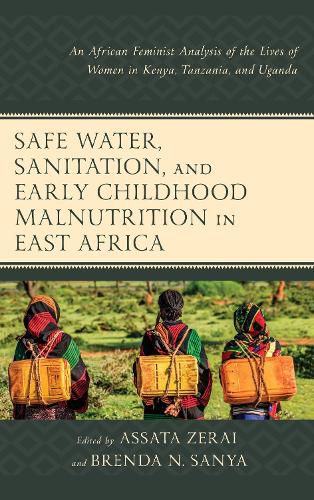Readings Newsletter
Become a Readings Member to make your shopping experience even easier.
Sign in or sign up for free!
You’re not far away from qualifying for FREE standard shipping within Australia
You’ve qualified for FREE standard shipping within Australia
The cart is loading…






To understand safe water and sanitation in East Africa, it is important to consider the contributions of African feminist analysis. This perspective will unveil inequities in the distribution of resources, demonstrate how localized solutions which are driven by women’s collaborative work have had an impact by temporarily easing the burden, and paint a multilayered picture of the lives of women and girls who are the predominant providers of water to households. This book explores the effects of water and sanitation quality and availability on early childhood morbidity in East Africa from an African feminist sociological perspective. It presents a framework that considers the ways that the development industry, neoliberalism, neocolonial relations, gender, class, ethnicity, globalization, and other dimensions of oppression intersect to impact upon the experiences and agency of women and children accessing clean water and safe sanitation and reducing early childhood morbidity in Kenya, Tanzania and Uganda. This work offers a vital contribution to the social scientific literature by adapting the vibrant intellectual work of African feminists to a quantitative methodology and enlarging the scope of empirically and theoretically grounded studies within the field of environmental sociology.
$9.00 standard shipping within Australia
FREE standard shipping within Australia for orders over $100.00
Express & International shipping calculated at checkout
To understand safe water and sanitation in East Africa, it is important to consider the contributions of African feminist analysis. This perspective will unveil inequities in the distribution of resources, demonstrate how localized solutions which are driven by women’s collaborative work have had an impact by temporarily easing the burden, and paint a multilayered picture of the lives of women and girls who are the predominant providers of water to households. This book explores the effects of water and sanitation quality and availability on early childhood morbidity in East Africa from an African feminist sociological perspective. It presents a framework that considers the ways that the development industry, neoliberalism, neocolonial relations, gender, class, ethnicity, globalization, and other dimensions of oppression intersect to impact upon the experiences and agency of women and children accessing clean water and safe sanitation and reducing early childhood morbidity in Kenya, Tanzania and Uganda. This work offers a vital contribution to the social scientific literature by adapting the vibrant intellectual work of African feminists to a quantitative methodology and enlarging the scope of empirically and theoretically grounded studies within the field of environmental sociology.